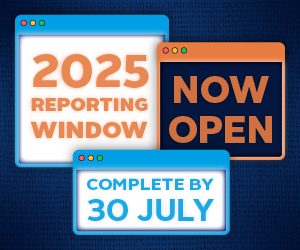Gregory Hershman, Head of US Policy, PRI, and Edward Baker, Head of Climate Policy, PRI
The US Securities and Exchange Commission (SEC) has proposed a rule requiring public companies to disclose certain climate-related information alongside their regular financial statements, bringing much-needed reliability, consistency and comparability to currently reported climate data. The rule, designed for the benefit of investors, is open for public comment until 20 May and we encourage every PRI signatory to respond.
Among the proposal’s key features are requirements to disclose: the governance and management of climate-related risks, the effects of the risks on a company’s strategy, Scope 1 and 2 greenhouse gas emissions for all companies and, where material, Scope 3 emissions for the largest companies.
The proposed rule also mandates additional disclosures for companies that make certain climate-related claims or use certain climate-related data in their operations, such as an internal carbon price or scenario analysis. For example, if a company has publicly set a climate-related goal or target – such as reaching net-zero emissions or aligning with the Paris Agreement – then it would need to disclosure the full extent of this goal, how it plans to meet it and any steps taken over the past year to achieve the goal.
The update to the SEC’s disclosure rules is timely as investors increasingly ask for climate-related information from issuers of stocks, bonds and other securities, and seek to understand the full range of risks and opportunities climate change presents. Although more than 80% of S&P 500 companies already disclose their Scope 1 and 2 emissions and many report on their Scope 3 emissions, climate-related disclosures are not standardized, making it difficult for investors to compare the data and incorporate it into their investment processes. Making this information subject to the same internal controls as financial information will bring order and surety at a critical moment for investors.
The SEC’s proposal also closely mirrors the recommendations of the Task Force on Climate-Related Financial Disclosures (TCFD), which are used across the largest capital markets and increasingly supported around the world, endorsed by more than 2,600 organizations. In one prominent example, a recent proposal for climate-related disclosures from the International Sustainability Standards Board (ISSB) uses the TCFD recommendations as a baseline and has significant similarities to the SEC’s proposal.
The SEC’s draft rule is poised to not only vastly improve investors’ access to information but also create efficiencies for issuers, which may often fall under multiple disclosure regimes.
In particular, including the entire range of emissions in reporting requirements, as proposed, will provide investors with a fuller picture of an issuer’s climate risks, both in its operations and supply chain. The additional disclosures pertaining to climate-related claims will help investors evaluate those claims as companies are increasingly setting climate goals. Just as management adds description and analysis to financial statements, explanations behind climate targets and goals will provide useful context for investors.
The SEC’s proposal responds to the global need to better understand climate risks and will help both issuers and investors seek out climate-related opportunities. Therefore, the PRI supports the proposal and is working on a response to the SEC to help further strengthen its recommendations.
But the SEC also needs to hear from US and global investors of all sizes on the ways its draft rule could support their investment activities. We encourage PRI signatories to call out the provisions of the rule you support and use data and examples to show how they would help your organization make better investment decisions. Make recommendations to the Commission where you think the proposal can be strengthened.
Establishing a robust climate disclosure rule in the US is something we should all be working hard to support in the weeks, and months, to come.
This blog is written by PRI staff members and guest contributors. Our goal is to contribute to the broader debate around topical issues and to help showcase some of our research and other work that we undertake in support of our signatories. Please note that although you can expect to find some posts here that broadly accord with the PRI’s official views, the blog authors write in their individual capacity and there is no “house view”. Nor do the views and opinions expressed on this blog constitute financial or other professional advice.If you have any questions, please contact us at [email protected].












